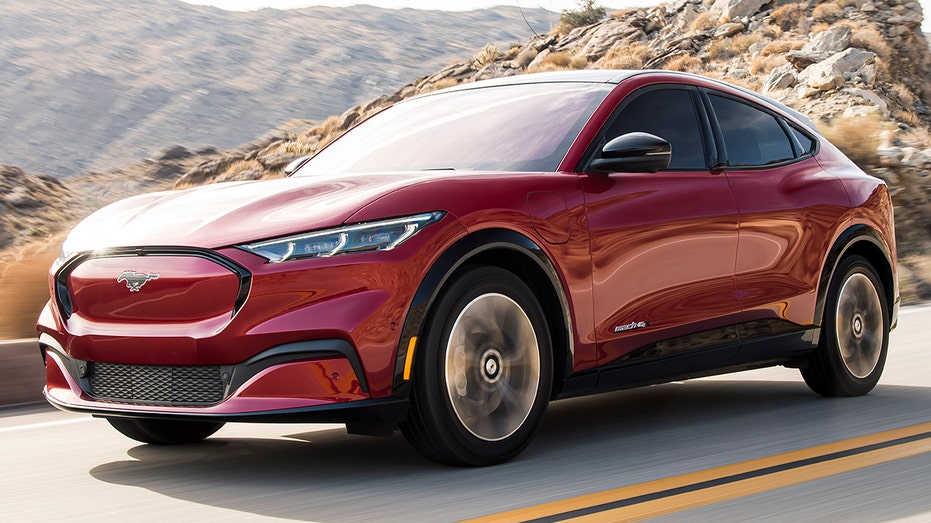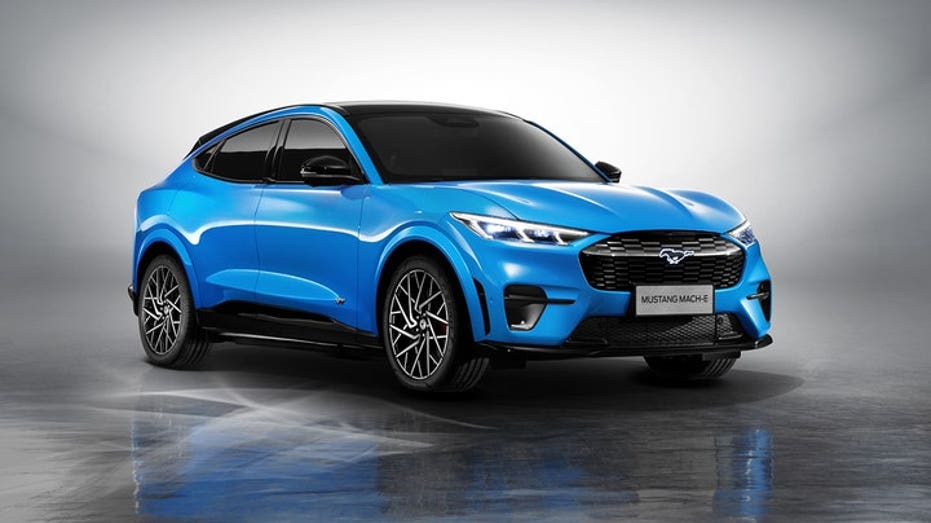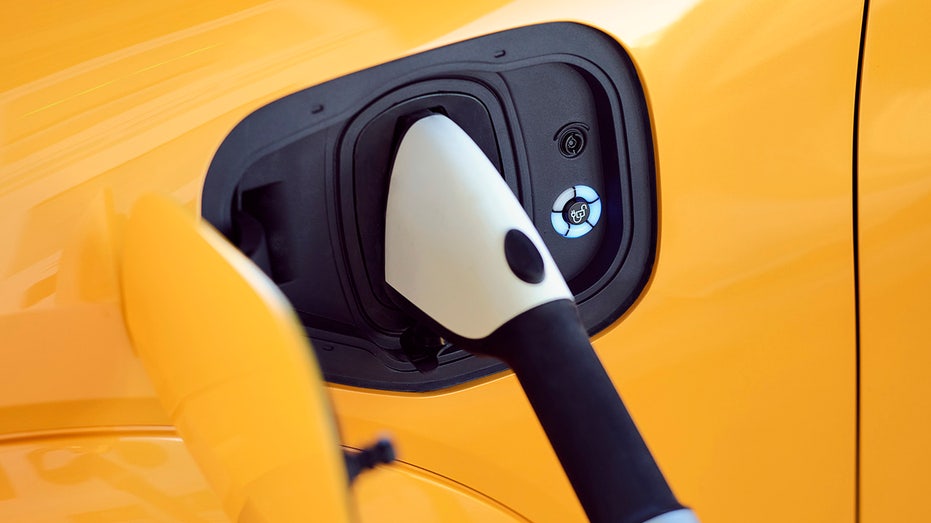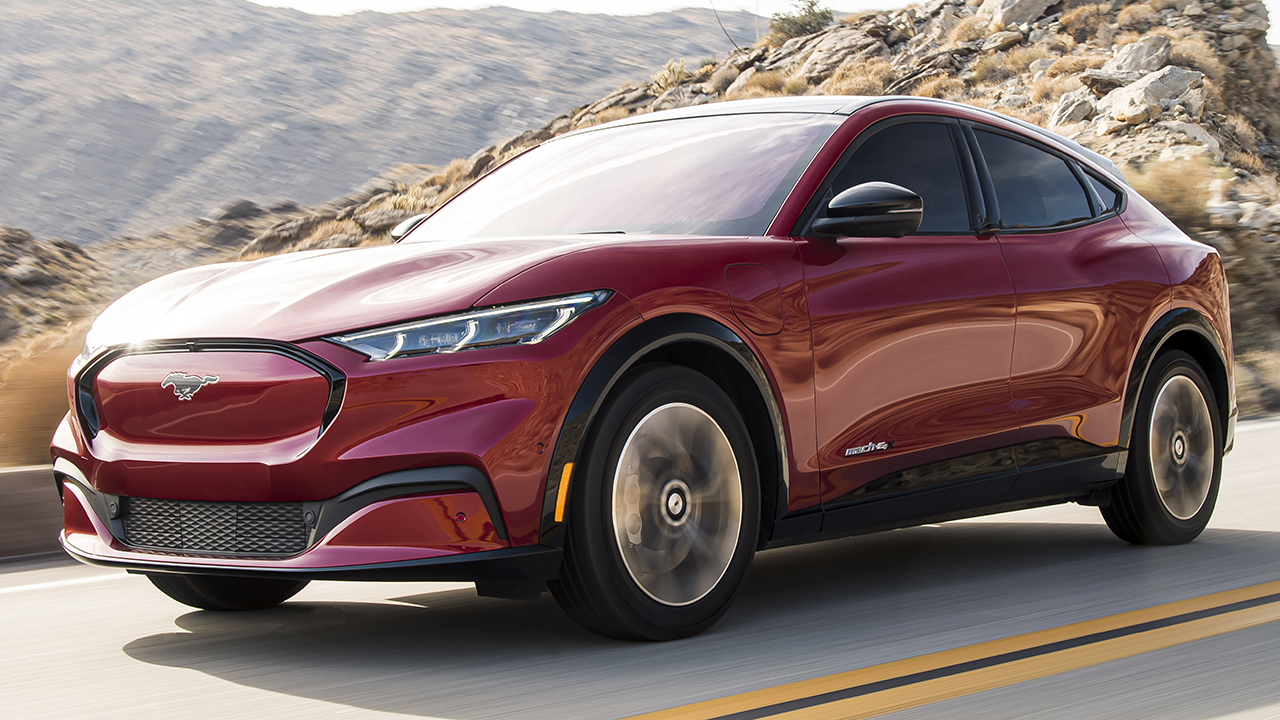Ford recalling 49,000 electric Mustang Mach-E SUVs due to power loss problem
Mustang Mach-E battery connector can overheat
Ford is recalling nearly 49,000 electric Mustang Mach-E SUVs and has told dealers to stop selling the ones on their lots due to a potential power loss issue.
The problem stems from a high voltage battery main contactor that can overheat and either remain stuck open or weld closed following the use of a DC fast charger or repeated wide open accelerator pedal events.
"If the contactor opens while driving, a powertrain malfunction warning light will be illuminated and the vehicle will display "Stop Safely Now’ in the cluster when the vehicle experiences an immediate loss of motive power," Ford wrote in papers filed with the National Highway Traffic Safety Administration (NHTSA).
"Should the contactors weld closed while driving, a powertrain malfunction warning light will be illuminated on the next drive cycle, along with a no start condition."

Nearly 49,000 Mustang Mach-Es are being recalled due to an overheating part that can cause a loss of power. (Ford)
High voltage DC fast charging stations can charge the Mustang Mach-E's standard range and extended range batteries from 10%-80% full as quickly as 38 minutes and 45 minutes, respectively.
Ford was made aware of the power loss issue in April and a review of warranty claims found 286 that involved an open or welded connector, but no accidents or injuries related to the issue.

Dealers have been told to stop selling Mustang Mach-Es with the issue. (Ford)
Exactly 48,924 Mustang Mach-Es built between May 27, 2020, and May 24, 2022, are affected.

The Mustang Mach-E's battery can be recharged from 10%-80% at a DC fast charging station in 38 to 45 minutes, depending on the pack size. (Ford)
A software solution is in development and current owners will be able to update their vehicles either through an over-the-air download or by visiting their dealers.
GET FOX BUSINESS ON THE GO BY CLICKING HERE
Notifications will be mailed to owners starting on July 18, but they can also contact the NHTSA vehicle safety hotline at 1-888-327-4236 (TTY 1-800-424-9153), or go to www.nhtsa.gov for more information.




















